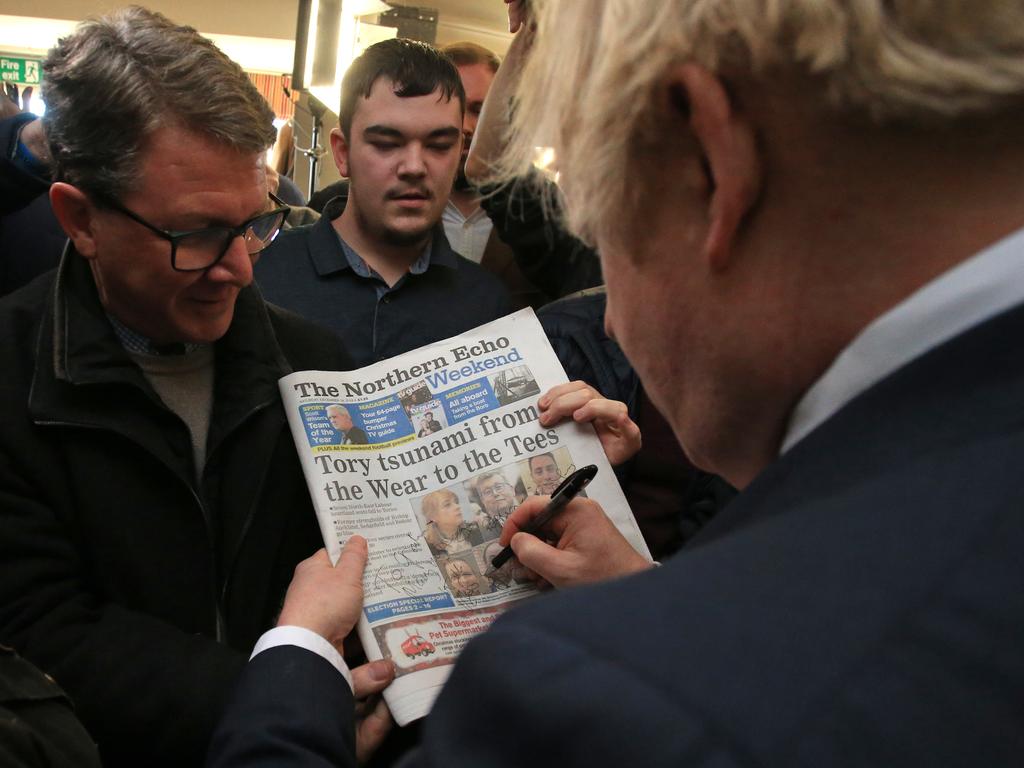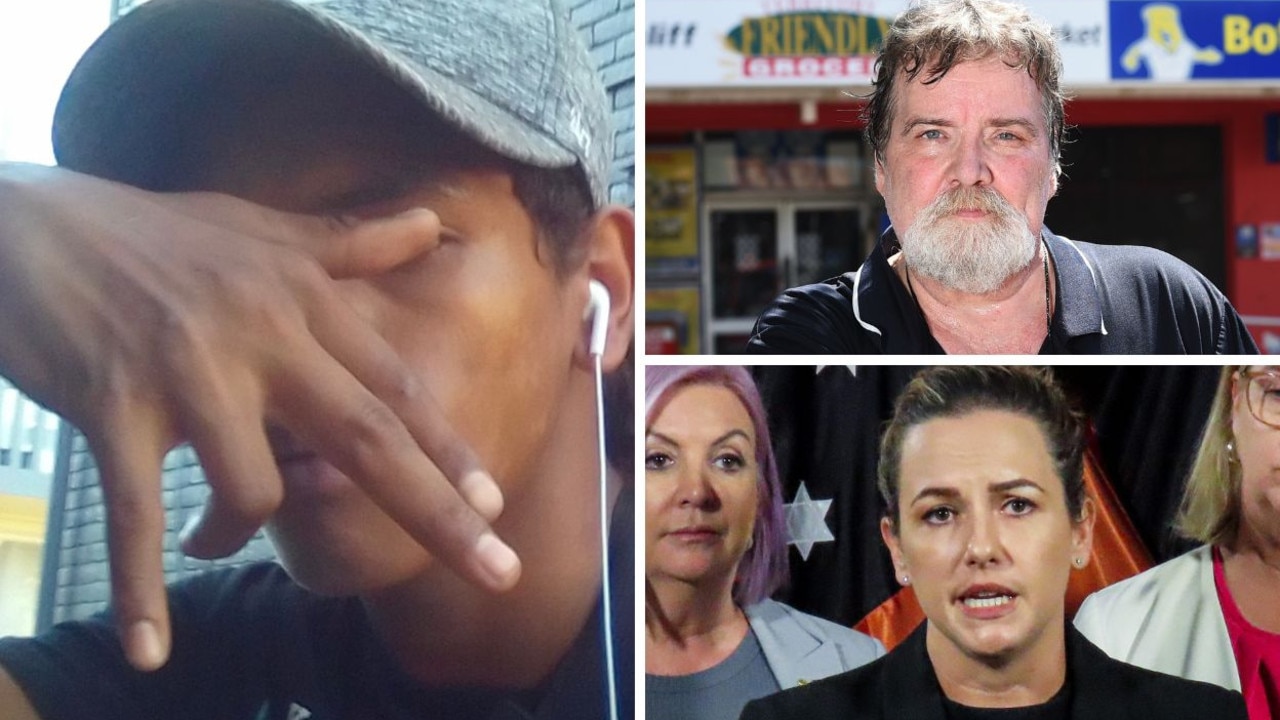London calling: Boris Johnson talks trade with Scott Morrison
Boris Johnson has said he will make a free-trade deal with Australia a top priority.

Boris Johnson has said he will make a free-trade deal between Australia and Britain a top priority as Scott Morrison hailed the landslide election victory for the Conservative Party as a silent rejection of progressives and socialist “arrogance” sweeping across Western democracies.
The Prime Minister spoke to his British counterpart on Saturday night, with the two agreeing to fast-track the proposed FTA and the newly re-elected UK leader confirming it would be high on his government’s agenda.
Negotiations are expected to restart early next year, following ratification of Brexit, with a final deal potentially struck within the next 12 months. Australia is in the box seat, along with the US, to become the first country to secure a post-Brexit free-trade agreement.
Mr Morrison told The Australian that following the conversation, he was confident about striking an agreement soon, given the uncertainty around Brexit had finally been resolved with Mr Johnson’s victory.
“We had a discussion about the FTA … and we are ready to engage on it with him,” Mr Morrison said.
“He had it high on the list of things to do and he was optimistic.
“We are very aspirational in what we can achieve.”
Mr Johnson will transform the British government with a cabinet clear-out, cuts to civil servant numbers and the creation of a new department that will lead negotiations over the trade deal with Australia’s Trade Minister, Simon Birmingham.
Hours after his victory speech on Friday, Mr Johnson called in Cabinet Secretary Mark Sedwill and other top civil servants to tell them of planned changes. As soon as Brexit has occurred on January 31, the Brexit Department will be abolished and future EU negotiations will be held by the cabinet office and international trade.
British Labour leader Jeremy Corbyn claimed at the weekend he took responsibility for a “desperately disappointing” election loss as he resisted pressure to step down immediately after Labour’s worst defeat in almost 85 years.
Mr Corbyn wrote in a British newspaper column: “There is no doubt that our policies are popular, from public ownership of rail and key utilities to a massive house-building program and a pay rise for millions.
“I am proud that on austerity, on corporate power, on inequality and on the climate emergency we have won the arguments and rewritten the terms of political debate.’’
Business Council of Australia chief executive Jennifer Westacott said the election result was a “watershed moment” and the British people had “overwhelmingly re-embraced a modern, progressive market-based economy to deliver a growing economy and more for all”.
“A decisive election result has also delivered businesses greater certainty — that means they can get on with their role investing and creating jobs,” Ms Westacott told The Australian. “The prospect of an Australia-UK free-trade agreement can be a boon for all Australians.”
Tony Shepherd, the chair of Tony Abbott’s 2014 Commission of Audit, said the reaction of Australian businesses to the election result would depend on the relative depth of their engagement in the two markets and the opportunities offered by Brexit.
“Our exporters, particularly agriculture, see an FTA with the UK as a great opportunity in a welcome return to the future,” he said. “There will be some relief in business that the political uncertainty has been resolved and the ridiculous hard-left policies of Mr Corbyn were rejected.”
Mr Morrison said the British election result had “echoes” of the Australian and 2016 US elections, and he likened British voters to the “quiet Australians”. “What is happening in Western democracies is a rejection of the progressivism that says ‘We know better’,” he said.
“This is being consistently rejected in the new economy and polity … people want control over their own lives and don’t want to be told what to do or what to think. And this is the real problem with the progressives … they want everyone to do what they want.”
He highlighted what he saw as similarities between the Australian federal election result in May, the British election and the 2016 US presidential election that saw the elevation of Donald Trump.
“The economic picture is far broader than workers versus bosses,” Mr Morrison said.
“If you are on the side of the economy, you are on the workers’ side … that’s what Boris Johnson said, what we said, and what Trump said.
“There is a strong echo (with the British and US elections). This quiet group is global … and they are not shouting because they are too busy working.”
Opposition Treasury spokesman Jim Chalmers told Sky News the lesson for centre-left parties from Mr Johnson’s re-election was that “you don’t beat populism of the right with populism of the left”.
An Australia-UK Trade Working Group was set up in 2016 to begin work on a possible deal with Britain, which is already Australia’s seventh-largest trading partner.








To join the conversation, please log in. Don't have an account? Register
Join the conversation, you are commenting as Logout